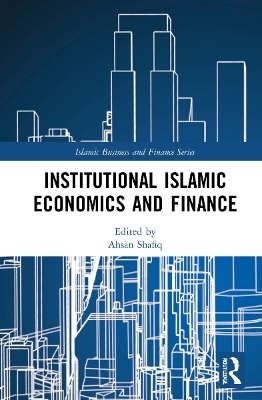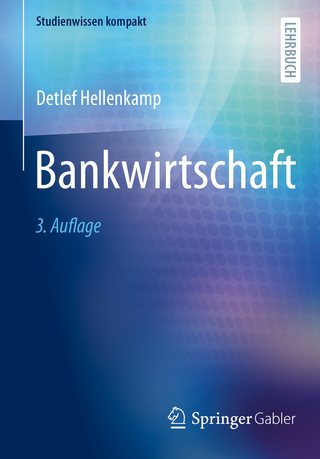
Institutional Islamic Economics and Finance
Routledge (Verlag)
978-1-032-15058-1 (ISBN)
Institutional economics claims that institutions and policies rather than the size of labour force, technology or capital investment are pivotal for growth or under-development. In this regard there are two kinds of institutions: external institutions expressed in the form of laws, organisations, regulations, companies, banks and the like and internal institutions, which are found in the hearts and consciences of individuals.
Against this backdrop, this book acquaints readers with the basic concepts related to institutional economics. It then brings to light the theoretical concepts related to the institutional perspectives on Islamic economics, particularly highlighting areas where Islamic economic institutions lay at the crossroads with conventional ones. The book also ref lects upon the organisational arrangements that comply with the basic tenets of Islamic institutional economics. Further, it brings a collection of real-world case studies into discussion to show the models of Islamic institutions that are pragmatic in today’s business environment. The book contains novel dimensions on the subject, includes conceptual debates as well as practical examples and explores hot topics such as waqf and fintech from an Islamic perspective. This is the first book to exclusively cover this topic and is written by well-known and respected international economists from the field.
Since the book is written in an accessible style and the concepts are expressed in plain language, it will find an audience among academics, researchers and students in economics and Islamic economic studies, as well as policymakers and professionals engaged in the Islamic finance industry, seeking to make their services and products conform to an Islamic institutional perspective.
Ahsan Shafiq is a Senior Researcher and the Coordinator at the Research Center for Islamic Economics (IKAM), Istanbul, Turkey.
Institutional Structure of the Islamic Economic System 2. Islamic Economics and Institutional Economics: A Methodological Discussion 3. General Principles of Business Contracts in Islamic Law 4. Repositioning Waqfs in the New Economic Order 5. Conceptualizing the Islamic Social Finance into a Three-sector Economic Model 6. Islamic Social Bank: A Sustainable Banking Approach 7. Can Microfinance Be a Solution for the Social Failure of Islamic Banks? A Linkage Model Proposal 8. The Justification Process of the Joint-Stock Company as a New Partnership Model in the Islamic World 9. Conscious Technology and Technological Change: Artificial Intelligence, Fintech, and Others 10. Islamic Multifinance Companies: Disbursement towards Sustainable Financial System for Low-income Groups in Indonesia 11. New Industry-Academic Partnership Model for Community Entrepreneurship Development: The Case of i-Taajir
| Erscheinungsdatum | 09.03.2022 |
|---|---|
| Reihe/Serie | Islamic Business and Finance Series |
| Zusatzinfo | 13 Tables, black and white; 16 Line drawings, black and white; 16 Illustrations, black and white |
| Verlagsort | London |
| Sprache | englisch |
| Maße | 156 x 234 mm |
| Gewicht | 453 g |
| Themenwelt | Sozialwissenschaften ► Soziologie ► Spezielle Soziologien |
| Wirtschaft ► Betriebswirtschaft / Management ► Finanzierung | |
| Betriebswirtschaft / Management ► Spezielle Betriebswirtschaftslehre ► Bankbetriebslehre | |
| Wirtschaft ► Volkswirtschaftslehre ► Finanzwissenschaft | |
| ISBN-10 | 1-032-15058-0 / 1032150580 |
| ISBN-13 | 978-1-032-15058-1 / 9781032150581 |
| Zustand | Neuware |
| Haben Sie eine Frage zum Produkt? |
aus dem Bereich


